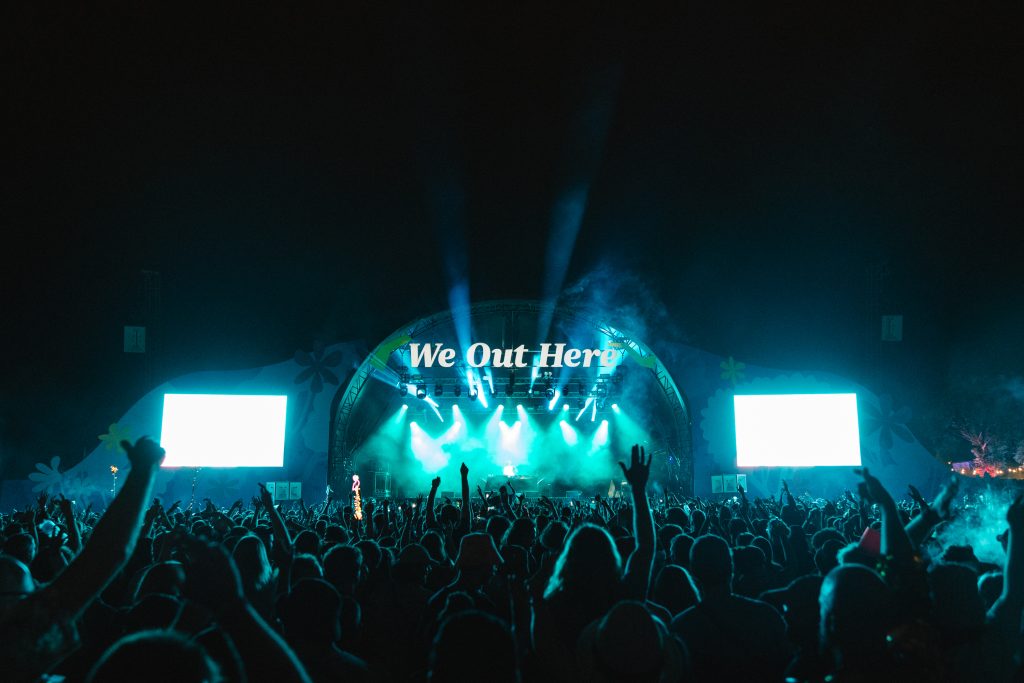
Nia Archives @ We Out Here 2023. Credit: Sienna Gray
Despite it being a difficult decade so far for the British music festival landscape, We Out Here has stood out as a remarkable success story. For it’s fourth instalment – a sell-out year – the festival has once again offered an eclectic line-up and a joyful, immersive experience that explains why so many people keep discovering, and returning to, this paradise of a weekend.
One of We Out Here’s strengths is that it feels like a family event – not because of the safe environment and occasional kids running around, but the friendly and dedicated audience it has developed for itself. In an industry dominated by one-day events and single-genre festivals, it provides a gathering of alike minds that share a passion for music and a desire for something different.
This year, they’ve managed to migrate from their birthplace in Cambridgeshire to a new parkland estate venue in Dorset, whilst maintaining the intimate and idyllic feel of their former home. Wellness areas, a spot to swim, and the pop-up restaurant Brawnswood have all been carried over.

Brawnswood @ We Out Here 2023. Credit: Rob Jones
All the same stages have been adapted to the new location, including the fan favourite Lemon Lounge, with its tight sweaty space and funny yellow décor. New addition The Bowl – a crater-like stage that you descend into for hours of dancing – has gone straight to the top of the stage rankings, a wonderful consequence of the relocation.
But it’s the strength of the programming and performances that makes We Out Here so consistent, regardless of the site. Artists and DJs represent almost every genre, with legends and newcomers rubbing up against each other on the same stages. An extension of Gilles Peterson’s music taste, it makes for a hopeful, holistic view on the state of music today and exploration of how it got here.
Take Sunday on the Main Stage, where Brian Jackson and his band are followed by Yazmin Lacey. The 1970s soul artist that inspired a generation and a genre alongside Gil Scot Heron, provides a goosebumps moment as he works through several of his classics. And then, Yazmin matches this with a performance of her neo-soul that feels just as special. Though their music was written decades apart, when performed in sequence it highlights the timelessness of Jackson’s songs, and the exciting direction that the likes of Lacey are taking soul, whilst keeping the standard just as high.

Hennessy Corner @ We Out Here 2023. Credit: Rob Jones
On Hennessy Corner, jazz band Steam Down return for another collaborative set with an iconic UK rapper, this year recruiting grime original P Money. The set serves two purposes: to show the intrinsic connections between the music P Money is famed for, and the new generation of jazz artists who grew up listening to it, very different in sound and identical in energy; and to offer the audience something they might never get to witness outside of a festival like this. The virtuosity and the connection of the band members and the MC is astonishing, making for the most exciting moment of the weekend.
Mala & Joe Armon Jones do something similar on the Main Stage. A father of dubstep performing with the torchbearer of the London jazz scene, with other leaders of the scene like Nubya Garcia and James Mollison on stage, makes for a stunning dance-jazz crossover. It’s a powerful demonstration of the open-minded fusion that’s typical of British music, and reminds us of all the influences that have gone into the contemporary jazz that’s been so successful in this country.
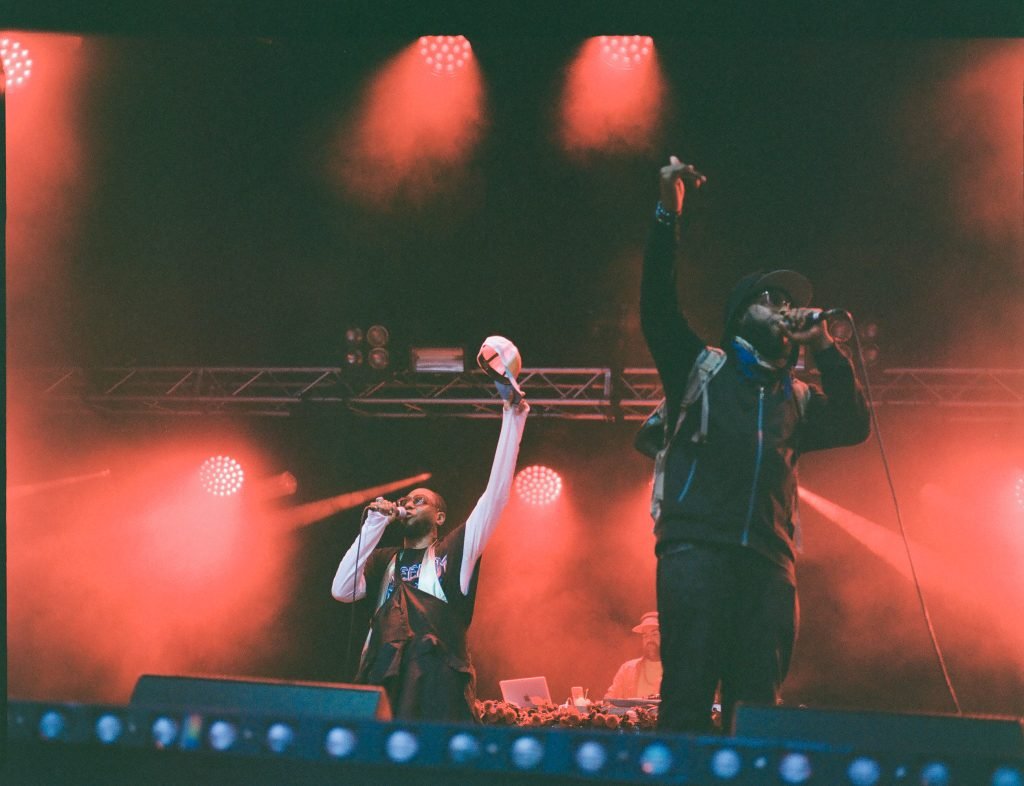
Black Star @ We Out Here 2023. Credit: Lauren Luxemborg
Two genres are given a special focus this year. Drum & bass / jungle gets a time-spanning representation on the roster, with legends like Goldie & Grooverider alongside Tim Reaper & Nia Archives. And to celebrate its 50th Birthday, hip-hop gets a nod with 90s super-duo Black Star, as well as UK stars like Jehst and Kofi Stone. The young and the old play equally important parts in showing off their respective genres.
Other notable sets from rising stars include Tash LC playing across multiple stages, DOMi & JD Beck on the Main Stage, 30/70 at Brawnswood one mid-morning, and Bakey & IZCO on the Rhythm Corner. Highlights from the legends include several hours of dub from the reliable Channel One, Omar S closing out The Bowl on Friday night, and the fathers of Britfunk, Cymande, gracing the Main Stage on Sunday afternoon.
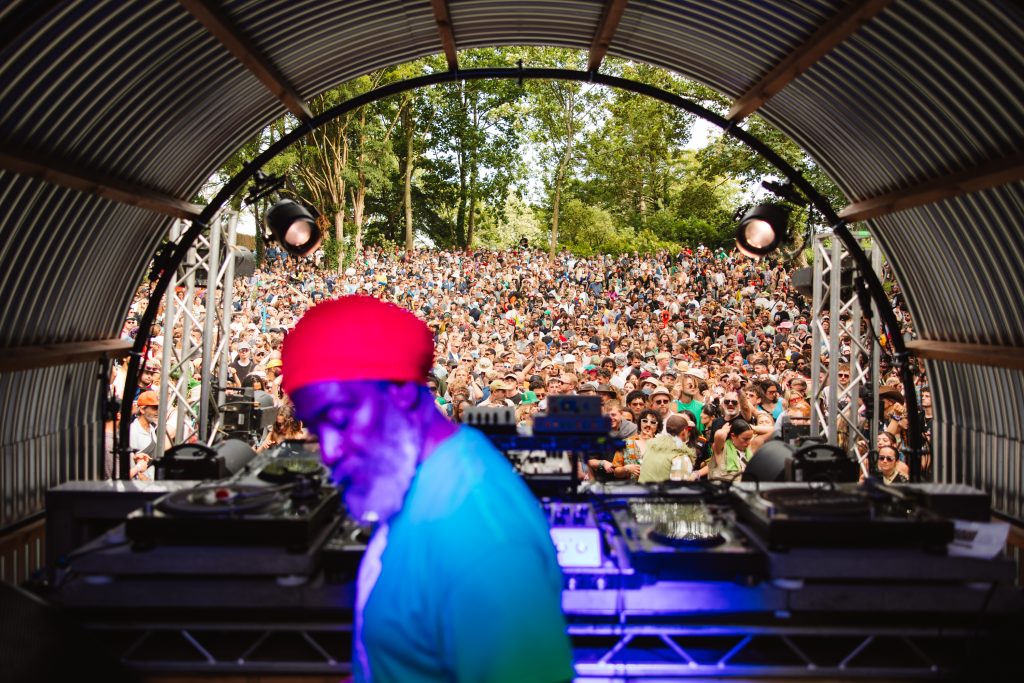
Channel One @ We Out Here 2023. Credit: Sienna Gray
The variety of sound and strength of performance is just as noticeable at this year’s We Out Here, and continues to stand it apart from other festivals. Just as Gilles Peterson has done throughout his career, We Out Here is connecting dots between genres, places and time periods. Much more than a four-day party, it’s an event that tells a story about how music evolves and influences itself.
2023 has proven that, no matter how much it scales, We Out Here will remain unique and exciting with this winning ethos.
***
Check out our review of We Out Here from 2021; listen back to our podcast about the Jazz-Funk scene that influenced festival curator Gilles Peterson.
Filed under: Music
Tagged with: British music, dj culture, DJs, festival, funk, Gilles Peterson, hip-hop, jazz, jazz-funk, London jazz, music festival, Soul, we out here, we out here festival
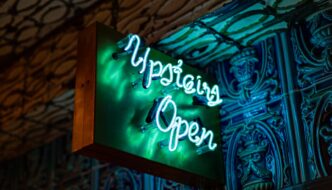
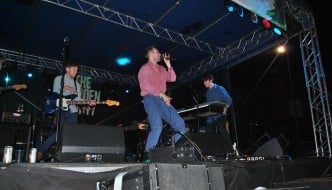

Comments